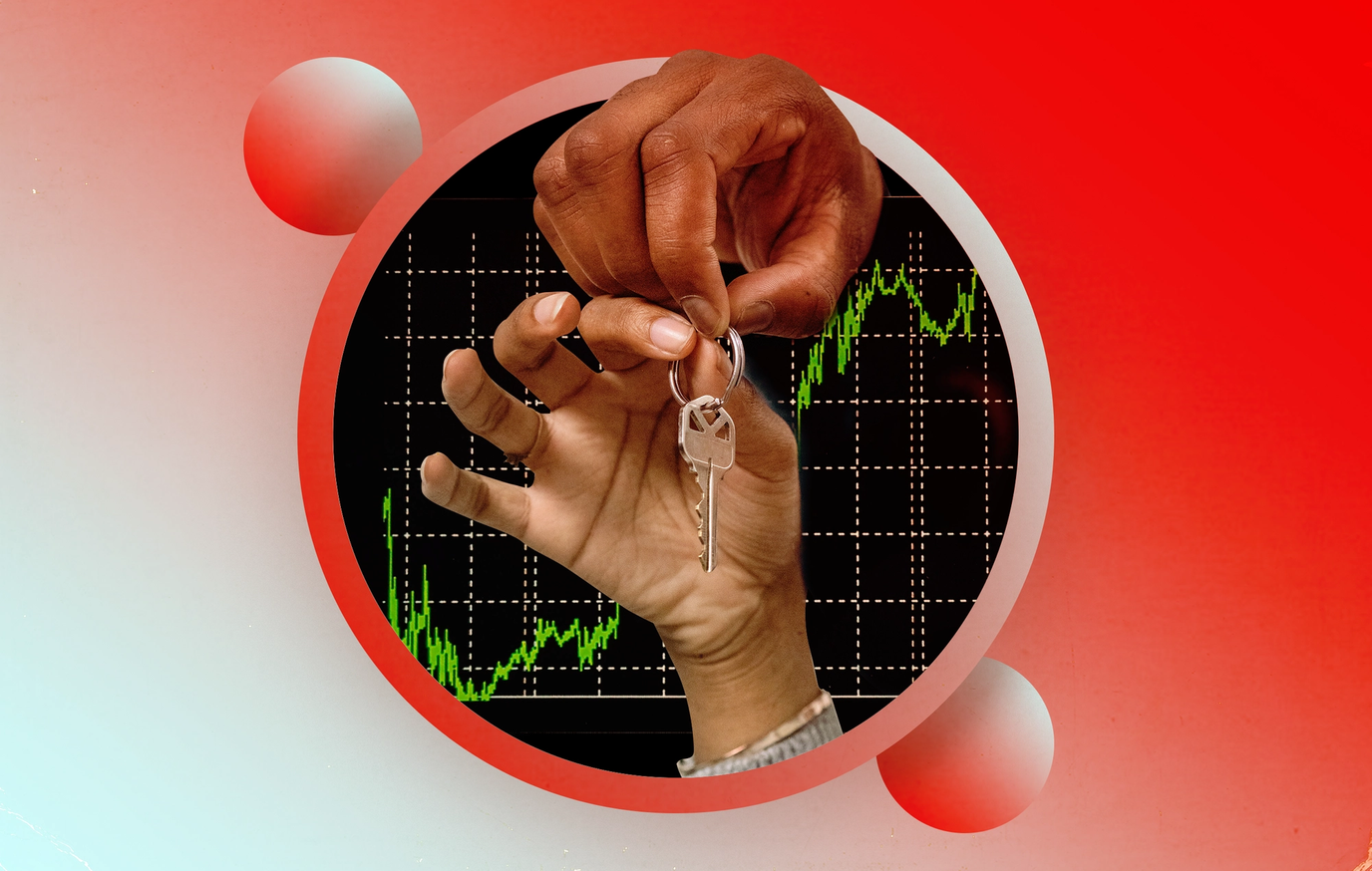
Rounding it up
Real estate is almost always a solid, safe investment that gives you permanency, security, and leverage in equity.
Despite the investment benefits, buying property comes with a lot of responsibility, unexpected costs, and the potential to become “house poor.”
Renting is becoming more common not only because owning property is becoming more difficult, but also because renting offers people more flexibility and freedom than owning.
If you live in a bustling city like Toronto or Vancouver, chances are you’re always hearing about how the housing market is out of control, including during the COVID-19 pandemic. Having the freedom to buy a house doesn’t come as easy as it did a couple of generations ago. Yes, people made less money, but even when adjusting for inflation, it was still much easier to purchase a house in the 1970s.
What does it take to buy a house these days?
Nowadays, if we continue to use Toronto as an example, you’re looking at a downpayment of close to $200,000 for a house, or approximately $100,000 for a condo. You also need a solid credit score and stable income to get a mortgage. Pair that with high student loan debt, systemic housing inequalities, a struggling economy, and high living costs, housing becomes a far away dream for many urbanites.
But purchasing property isn’t impossible. Planning early, working hard, researching the market, starting a side hustle, budgeting, and saving has helped some buy homes, even in a hot market.
But the real question is, do you really want to buy? While there are plenty of reasons why property is a solid investment, it might not be for everyone. Let’s take a look at some of the pros and cons of renting vs owning.
Why should you buy property?
Real estate is still seen as one of the most lucrative investments you can make. The pride of owning your own home is priceless to many, but there are many tangible, financial benefits.
1. It’s relatively safe, especially when compared to the stock market
Unlike the stock market, real estate isn’t too volatile. Since real estate investments take place in a private market, they have higher prices and fewer buyers than the public stock market, therefore a lower frequency of trade. This keeps things expensive, but also less risky.
Of course, many factors could make a real estate investment less “safe.” If you’re looking to rent out your investment property, your rental income depends on you finding a suitable tenant, which can take longer than expected. If the property is an old house or building, you could be on the hook for some unexpected, thousand-dollar fixes to bring it up to code. However, real estate investments tend to be protected from risk, provided you’re in it for the long haul. Even if a recession brings your property value down, it’s almost always temporary. If you have time on your hands, your property value will come back up, and usually appreciates from when you purchased it.
2. Leverage in equity
Owning real estate doesn’t usually give you access to cash — a lot of your money is tied up in the property, be it with the mortgage, down payment, or maintenance. However, that money tied to your property is equity, or the value tied to your asset.
That equity can be used in many ways. For example, if you’ve paid your mortgage for a decade, you have tens of thousands of dollars in equity that you can leverage towards another real estate investment payment, a student loan, or collateral for a business loan.
3. Freedom to decorate and renovate
So you may not have the freedom to skip out on your mortgage and move across the world, but you do have the freedom to renovate your house however you’d like. If you feel like creating more space by tearing down a wall for an open concept look, you can do that (pending local laws of course)! If you want to replace your countertops, upgrade your bathtub, or install solar-panels for green energy, go for it. As a renter, you’re at the mercy of the landlord, and they likely won’t allow anything bigger than lipstick decorations.
"Saving for a downpayment takes years, decades even. And paying a mortgage every month can mean sacrifices in life’s finer things."
Sounds great, but what are the cons of home ownership?
1. You’re on the hook for maintenance, upkeep and taxes
If you rent, you don’t have to cover the cost of fixing a broken oven, faulty toilet, or old heater. That’s the landlord’s job, and if you’re the landlord then... it’s your job. Maintaining a home can be costly, and a lot of the time, they aren’t costs you can put off. Consider a broken chimney; you need to fix it because if its bricks fall, you could be liable for hurting someone.
Let’s not forget about the taxes. When you buy a home, you’re subject to both provincial and municipal land transfer tax, which can cost you close to $20,000 altogether. Property tax varies depending on the city you’re in, but make sure to factor a few hundred dollars every month for it.
2. You’re tied to your mortgage (and location)
An amortization period lasts 25-30 years in Canada. That’s a long time to be on the hook for a loan! You need to pay your mortgage or risk eventual foreclosure on your home. If you decide you don’t want to own your home anymore (maybe to move to a different building, city, or country), there’s a lot more work involved. You’ll need to invest in staging your home, paying a real estate agent, and risking a lower selling price if you’re in a rush to sell.
3. Sacrifice and discipline with less cash flow
Saving for a downpayment takes years, decades even. And paying a mortgage every month can mean sacrifices in life’s finer things. You might not be able to travel as much as you would like, because you need to spend a couple of grand fixing up your kitchen, or dealing with a pest issue. Many homeowners claim to feel house poor, with a lot of equity in their home but very little cash to spend.
SPEND SMARTER. SAVE FASTER
Is Renting so bad?
Renting involves shelling out a large chunk of change every month to someone you don’t know, so your money isn’t going into any sort of investment. You also don’t have the freedom to decorate and renovate. Most of us are familiar with all of the cons of renting.
But many are choosing to rent these days, as there are some positives to renting:
1. Less of an investment, but lower in costs
The rental market can be high in some cities, but renting still has lower carrying costs than owning. You don’t have to cover maintenance costs, as your landlord is responsible for fixing appliances and ensuring the home is in good condition. Additionally, you don’t need to worry about unexpected costs or property taxes that you would as a homeowner.
Overall, renting puts a little more money in your pocket than owning, which can free up some room in your budget for other investments or needs, like buying a car.
2. Less responsibility, more flexibility
The standard lease in Ontario has a one year term. That’s a lot shorter than an amortization period, which gives you the flexibility and freedom to leave almost whenever you’d like. Nowadays, landlords are becoming more flexible in offering people shorter leases, and tenants don’t feel as tied down to their rental.
If you’re interested in taking spontaneous trips, working in different locations, or simply having the freedom to try out different living accommodations every so often, renting gives you more freedom to do that than owning.
So which one is better?
That depends on what you like. If you have the savings and are looking for a long-term, solid investment, real estate is probably a good bet. But if you’re interested in having a bit more freedom with cash flow and residence location, consider renting for a while longer.

About the author
Chrissy is a freelance writer and editor who is passionate about making financial education accessible. She is also a communications advisor for the Ontario Ministry of Energy, Northern Development and Mines. When she isn't writing, you can find her practicing yoga or watching horror movies.
Read more about this author